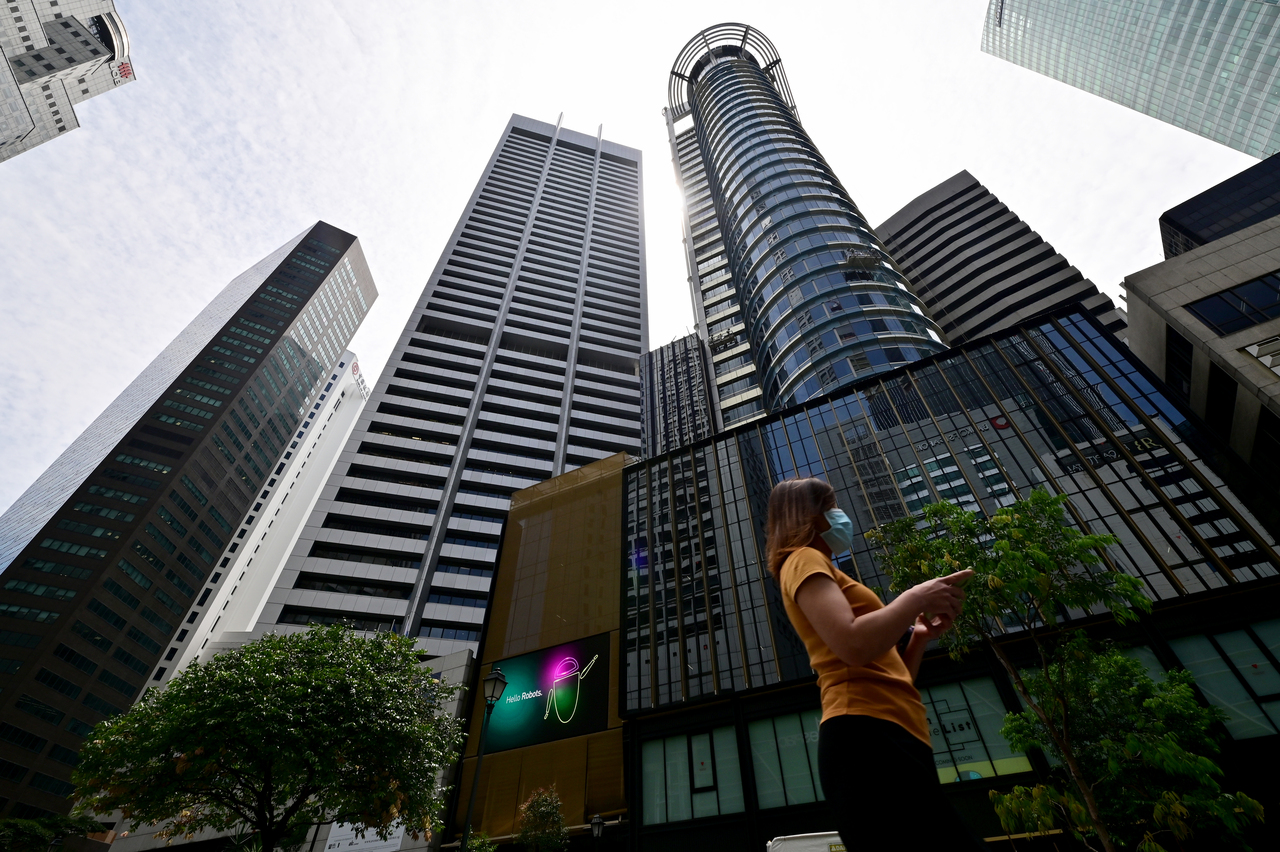New enterprises bloom in Singapore despite Covid-19 gloom
Sign up now: Get ST's newsletters delivered to your inbox

There were 63,480 new enterprises last year, up from 61,573 in 2019.
ST PHOTO: LIM YAOHUI
SINGAPORE - Companies were hit hard by the Covid-19 pandemic last year but local entrepreneurs still managed to defy the downturn to open a striking number of new businesses.
There were 63,480 new enterprises last year - a period that included Singapore's worst recession since independence - up from 61,573 in 2019.
It was the highest number since 2016, when 64,933 new businesses were registered with the Accounting and Corporate Regulatory Authority.
This year is off to a good start as well with 27,764 new businesses in the first five months of the year, 5,626 more than the same period last year.
The number of business closures last year also defied expectations, given that the economy contracted by 5.4 per cent.
The shutters came down on 43,335 entities, notably fewer than the 47,504 in 2019 and the lowest number since 2016, when 60,750 were recorded.
Analysts said the low numbers were due to government support and relief schemes that cushioned the impact of the pandemic and possibly stopped or delayed the tide of potential bankruptcies.
Some of the better-known casualties last year included home-grown department store Robinsons and retail chain Sportslink.
"I am sure for every big name, there must be dozens or hundreds of SMEs affected," said OCBC chief economist Selena Ling.
Since Singapore entered Phase 2 of reopening last June, the number of new businesses registered rose from 5,563 in June to 6,384 in October, outpacing registrations in the first five months of the year, which hovered between 3,768 and 5,082.
Retail recorded the highest increase of 54 per cent, with around 9,000 new businesses last year compared with about 5,800 in 2019.
Manufacturers were active as well with a 17 per cent increase in new businesses while there was a 10 per cent rise in new food and beverage enterprises.
Net formation - the number of new entities formed less the number that shut - came in at 20,145 last year and is the highest since 2014's 34,729.
Ms Ling said the higher number of new firms set up since June 2020 could be due to different industry-specific reasons. The rise in the manufacturing sector, for example, is likely due to the electronics upturn and 5G demand.
She added that as vaccination picks up speed and economic confidence improves, new business formation will likely rise in tandem.
Mr Hau Koh Foo, director of the Institute of Innovation and Entrepreneurship at the Singapore Management University, said the pandemic had made many countries review and rebuild their supply chain strategy, such as in making masks domestically.
Interest rates have also fallen since the restart of the economy following the lockdown, making it cheaper to borrow to finance a new start-up, he added.
There are also several funds and grants to help new start-ups.
Enterprise Singapore's Startup SG Founder programme provides mentorship and a capital grant of up to $50,000 for first-time entrepreneurs. The government said that it will pump up to $150 million into the programme to continue spurring innovation and entrepreneurship during the pandemic.
Experts also said that even in the hard-hit sectors like retail and food and beverage, all is not lost as firms can adopt technology to weather the storm.
Singapore Management University assistant professor of finance Aurobindo Ghosh noted: "The global pandemic did not disrupt the demand for some of these sectors. To pivot, many businesses including F&B outlets might have adopted more delivery options like Grab and Deliveroo.
"Wholesale trade might also be looking at different channels to reach out to the smaller businesses and even directly to consumers with the surge of e-commerce."
Adding to the new business tally may be those who have closed their businesses.
Mr Kurt Wee, president of the Association of Small and Medium Enterprises, said: "This is the cycle of business, but the entrepreneurial spirit always remains. I wouldn't rule out the fact that these entrepreneurs might come back again when the situation improves."
- Additional reporting by Sue-Ann Tan


